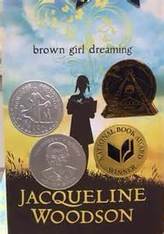
I like to get the students in my Young Adult Literature classes participating during the months leading up to the live ceremony honoring the winners. This year, when the Longlist was announced by The New Yorker on the morning of September 14, I showed the titles and cover images and gave some book talks. I pointed out that there are debuts; there is a graphic novel; there are nonfiction selections. I introduced my students to the committee: Joseph Adams, Teri Lesesne, Laura McNeal, G. Neri, and Eliot Schrefer. I mentioned that I had worked with Teri Lesesne at the LSU YA Literature Conference & Seminar in 2014. I told them that 294 books were submitted for consideration, and asked them to imagine what the committee members went through to come to consensus on the ten books we saw before us. I told them of my disappointment that two of my favorite books published this year, Kimberly Brubaker Bradley’s The War that Saved my Life and Thanhha Lai’s Listen, Slowly were not on the list. How could that possibly be?
In the weeks following this year’s Longlist announcement, I have shown my students the book talks I have written for my website as I’ve tried to work my way through the list. I will include one example at the end of this post, and you can find others as I continue to post them on www.hhpcommunities.com/youngadultlit).
Next, I will give a writing exercise:
“Which of the two finalists you have read is more worthy of the gold medal? Tell what criteria you used as you made your decision (quality of writing, appeal of characters, appropriateness for target audience, etc.) and use details from the texts to support your points. Imagine that we in this class are on the NBA committee, and you want to convince the rest of us to concur with your judgment.”
Some will try to say they’ve declared a tie, or that they can’t compare two books that represent such different genres or styles. No, I tell them, you must choose. Real committees face these same challenges. I show models of what their writing might look like from last spring’s Battle of the Kids’ Books competition, sponsored by School Library Journal. The judges write fantastic rationales for their decisions regarding which of a pair of books proceeds to the next bracket, but that’s a subject for another day’s post.
Will there be a letdown after the exciting competition we have been a part of? Will the rest of my semester be anticlimactic? Not at all. First, I will bring to class all the past winners of the National Book Award. (The Young People’s Literature category was established in 1996.) I will invite interested readers to join me in an online book discussion club over semester break; our goal will be to determine a “Meta-Gold Medal” recipient from the 20 winners.
There are so many ways we teachers and librarians can involve our students at all levels in authentic activities involving literary awards that can lead to wide reading and purposeful discussion and writing. I hope you’ll let me know which one of the worthy contenders you are rooting for to get the gold National Book Award medal on its cover. May the best book win! Or is it, “May your choice win?” Or, “Let’s have a class vote?” Or, “My choice is better than your choice?” Or “Maybe we should be critiquing the existence of, purposes of, and results of giving medals to books?” Enjoy your reading and arguing—it’s all good.
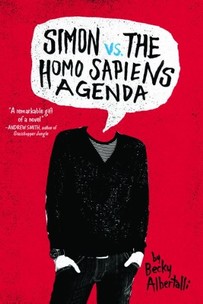
Seventeen-year-old Simon is gay, though no one knows it yet except his secret crush, “Blue,” whom he writes to online. He wants to come out to other people in his own time and his own way, as soon as he figures out what that is. Too bad he forgot to log out of the school computer; now classmate Martin also knows, and Martin is not above blackmailing him. Martin is also not above posting the news on social media.
I would call this debut novel by Becky Albertalli (2015, Balzer + Bray) a mystery. I was trying right along with Simon to figure out who Blue might be. We know it’s someone in the same high school, but he isn’t ready to disclose his identity, and isn’t ready to meet Simon in person. Is it Cal, who is at daily rehearsals for the school play with Simon? Is it Nick, who has been Simon’s best friend forever, but who seems to be quite happy in his developing relationship with Abby? Oh, heavens, could it be Martin? Please don’t let it be Martin!
We get to know Simon’s parents, sisters, and friends a bit as events unfold. We get to see both the anguish that cyberbullying can cause and the support that the wider school community can provide that can lead to healing. Mostly, we get a good story that has the power to absorb our imaginations as well as evoke empathy and hope.
Simon vs. the Homo Sapiens Agenda made the 2015 National Book Awards Longlist in the Young People’s Literature category. We can find out on October 14 if it is chosen as an NBA Finalist.
-Appropriate for high school (English Language Arts, psychology)
This book talk is posted here.
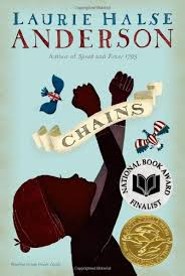
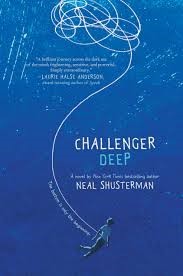
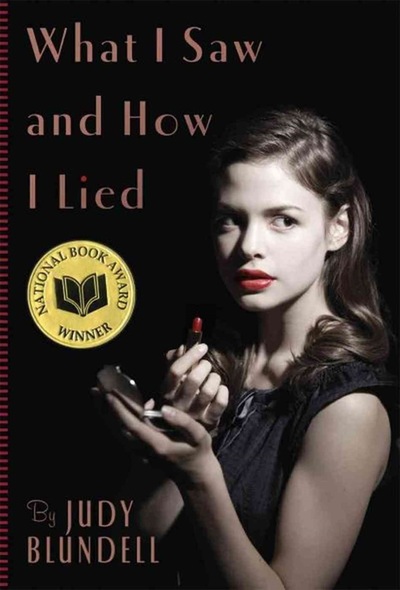
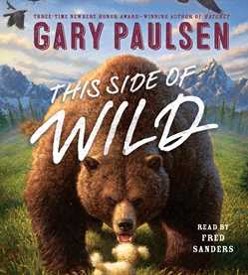

 RSS Feed
RSS Feed